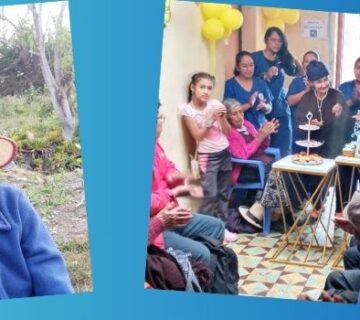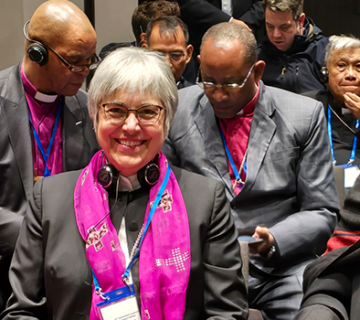From 17 to 19 June, the representatives of local entities representing the Focolare Movement around the world met to reconsider their role and share good practices and challenges at various levels.
How is the Focolare structured juridically at a local level? How are the little towns, businesses and social actions in the different countries where the movement exists regulated and linked to the spirit of fraternity that animates them?
In the past, someone once said that the Focolare Movement is not a complicated reality, but a complex one; a complexity that has evolved over almost 80 years of history and as a consequence of communities spreading around the world. There are currently around 2 million members and adherents in 182 countries. For this data to be correctly interpreted, it has to be recorded at the local level, and this is where the complexity arises because of the wide variety of forms of association that reflect the Movement’s activities at a regional level. In technical terms they are called ‘entities’ and allow for an association of people to exist and operate in a given territory or country.
From 17 to 19 June, representatives of the local entities representing the Focolare Movement around the world met at the Mariapolis Centre in Castelgandolfo (Rome, Italy), some in person, others via video link, to reconsider their role and share good practices and challenges at various levels. Markus Alig, Focolare councillor for Western Europe for the aspect of economy and work, clearly expressed the need to take stock: “working together and sharing ideas for restoring works and structures, increasing transparency and making Focolare members of the different communities aware of projects in the pipeline and how things are going”.
Starting from Chiara Lubich’s vision of work, Geneviève Sanze and Ruperto Battiston, responsible for the aspect of economy and work in the Movement, highlighted how central work is in the thought and life of the Focolare. They underlined the importance of entities that run little towns or social actions in which focolarini, people of various vocations and those who are not part of the Movement work together. This topical theme was also emphasized by the Dicastery for the Laity, Family and Life, which last April organised the annual meeting of Moderators of Associations of the Faithful, Ecclesial Movements and New Communities, on the theme “Working conditions within the Associations. A service according to justice and charity”.
The entities: at the service of the life of the Focolare around the world
Of the 180 participants, some recounted the history and the current “state of play” of activities born under the aegis of their respective entities, such as Simon Petre Okello from Uganda, who spoke about NASSO, Namugongo Social Services Organization Ltd, an organisation founded in 1999 by members of the movement to promote socio-educational and health activities inspired by the principles of fraternity. Over the years, three supporting ‘arms’ have developed: a health centre, a nutritional centre and a socio-economic centre. The organisation has thus enabled numerous activities to be developed over the years: continuous educational support from primary school to university; courses in therapeutic nutrition for children and parents; dental, radiology and maternity workshops; and assistance to patients before and after treatment. Social activities also include commitment to the environment in partnership with organisations in different countries.
Kit Roble, who is responsible for the Focolare entity in the Philippines, described a pathway, still in progress, towards greater involvement and participation on the part of the board of directors in decision-making processes. This includes the involvement of qualified external consultants in the near future. A path that has highlighted the need for greater mutual listening and common discernment in facing the various challenges.
Renata Dias, a lawyer in the USA, also spoke of a pathway that has led to distinguishing the entities that own the buildings from those that carry out the activities of the Movement, for a correct distinction of responsibilities, in a path of sharing and transparency.
The experts: between faithfulness to the charism and looking to the future
Among the experts who spoke was Prof. Patrick Valdrini, former Rector of the Catholic University of Paris, who illustrated the relevance of associative experiences that are born from ecclesiastical charisms, their place in the Code of Canon Law and possible new perspectives. A speech that highlighted the spiritual roots of the juridical structures needed for movements and lay aggregations to function properly: “Every charism belongs to the Church,” explained Prof. Valdrini, “it is inspired by the Holy Spirit and for the charism to be offered to people, institutions need to be created that enable the charism to spread and also protect its original spirit”.
The last day of the meeting was dedicated to the constellation of associations born from the Focolare spirituality that promote the ideal of a United World. Professor Luigino Bruni recalled how these associations cannot lose sight of their link with Chiara Lubich’s charism, from which they start to find their specific way of incarnating it.
Anne Claire Motte, a French lawyer and canonist now living in the Ivory Coast, chose the word “covenant” to express the path that must be followed with respect to the different orders, listening, mutual appreciating and giving utmost respect for people. They parted with a renewed commitment to “building networks” so as to go ahead together seeking inspiration from each other.
Stefania Tanesini


 Italiano
Italiano Español
Español Français
Français Português
Português




Da alegria conocer la organización responsable del Movimiento en el mundo viviendo la espiritualidad (q tantos hemos recibido vivido) gracias Adelante
Cada cual a su paso con la inspiración del Espiritu. En mi caso como adherente, estoy reflexionando para ayudar orientar personas sin trabajo o/y sin techo
Unido
Dobbiamo pregare insieme e con fede perché riusciamo a vivere l’ideale di Chiara in ogni avvenimento della nostra vita.
Ua experiencia muy buena. Buscar juntos y realizar actividades juntos para salir y llegar a todos. Gracias
Grazie per essere in cordata.